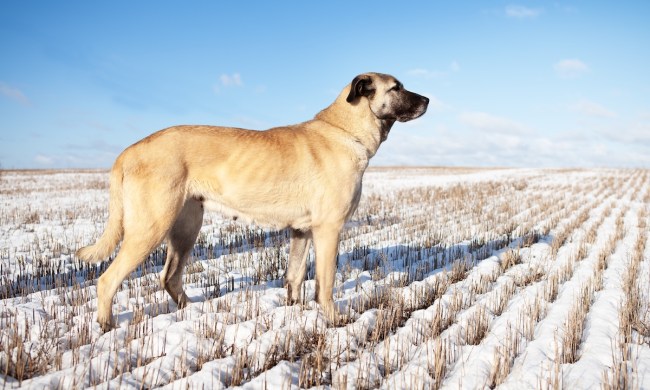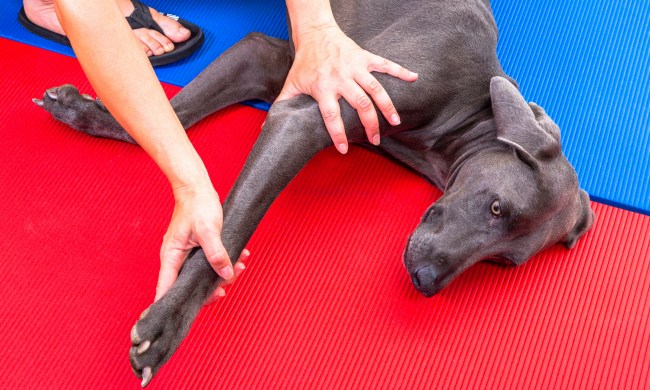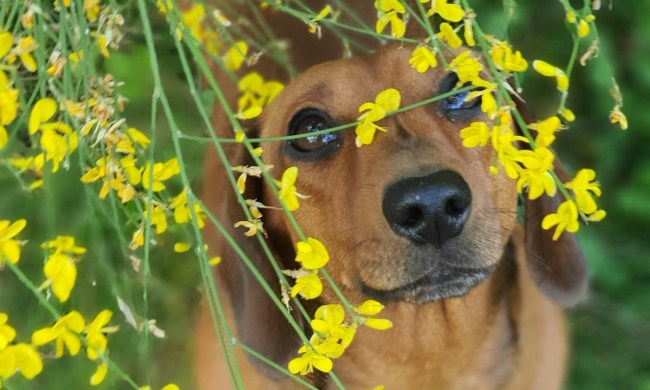Walnuts are both a holiday staple and the perfect snack. As versatile and scrumptious as these nuts are for us, they may not be safe for everyone in the family. The digestive systems of dogs work differently than those of people, so what fuels our bodies may not be a nutritious snack for your fur baby. Now, you may be wondering, are walnuts safe for dogs?
We’re here to find out. It’s always better to be safe than sorry, after all. Questions like “can dogs have walnuts?” and “what nuts are safe for dogs?” will all be answered here. Soon, you’ll have all the know-how to keep your furry friend safe and healthy no matter what is on the table. We’ll even include some ideas and recipes for fun alternative treats. It’s time to get snacking!
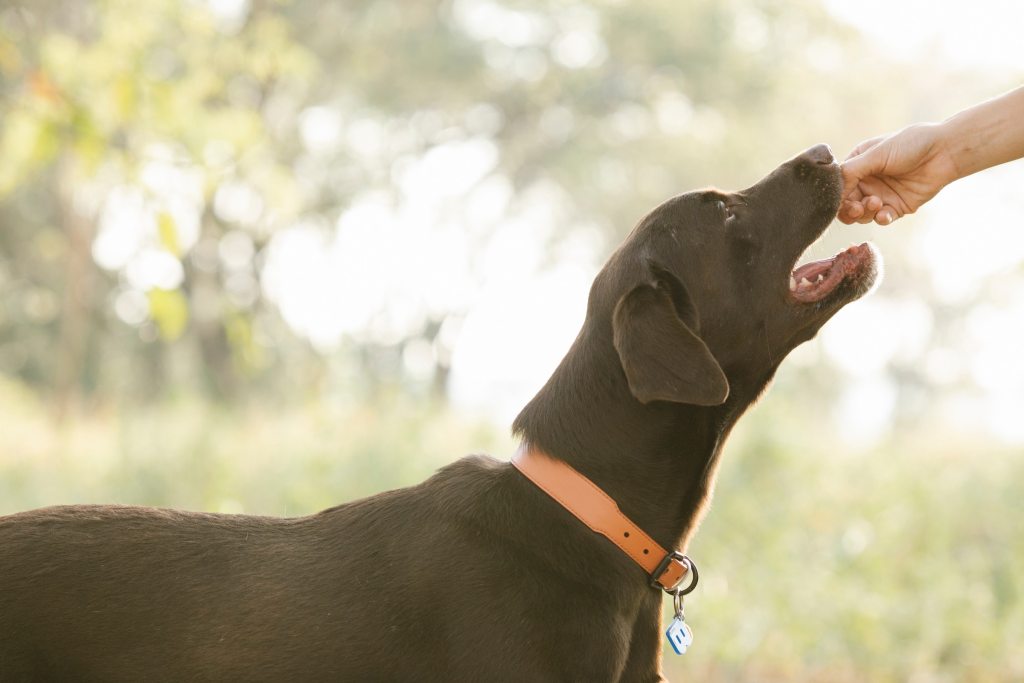
Are walnuts bad for dogs?
Although a bite of a stolen walnut is by no means a death sentence, walnuts are not a safe snack for dogs. Even in moderation, they can be both fattening and toxic. Walnut trees contain a poison called juglone in their roots, and this substance can be transferred to the nut when it falls to the ground. It adheres to the shell but can be found on the inside as well.
In the wild, juglone helps walnut trees grow strong by killing any plants that attempt to grow around it. When ingested by dogs, though, it can have dire consequences like convulsions and seizures. Black walnuts are more likely to carry this toxin than their kitchen-friendly counterpart, the English walnut. Because of this, pay extra attention to anything your dog picks up outside near walnut trees.
If your dog gets hold of an English walnut, the low levels of juglone probably won’t hurt him (especially if he’s a larger dog). Because of their high fat content and the presence of toxins, though, these nuts should never be given to your furry friend on purpose.
Can dogs have nuts?
Luckily, not all nuts are toxic to dogs. Many pups indulge in the delicious taste of peanut butter, and the nuts themselves are no exception. Although they’re technically legumes, peanuts are nontoxic to dogs. They still have a higher fat and calorie count than is ideal for most pups, so moderation is key. Be careful to avoid xylitol (an artificial sweetener) in peanut butter, as this can be extremely toxic!
Other nuts that are safe for dogs include:
- Roasted cashews
- An extra-small portion of Brazil nuts
- Roasted American chestnuts (small portion)
Macadamia nuts are the one nut to help your pup avoid at all costs. These are extremely toxic to dogs, in the same way that grapes and raisins are dangerous for canines. Please keep macadamia nuts away from dogs.
Smaller dogs have a higher risk of choking on nuts, so you may want to consider chopping nuts into smaller pieces before feeding. Smaller breeds also are more at risk for poisoning; the same amount of a toxin will do a lot more damage to a smaller dog’s health. Generally speaking, the smaller the pup, the smaller the portion they can have — so keep this in mind when deciding what to give them.
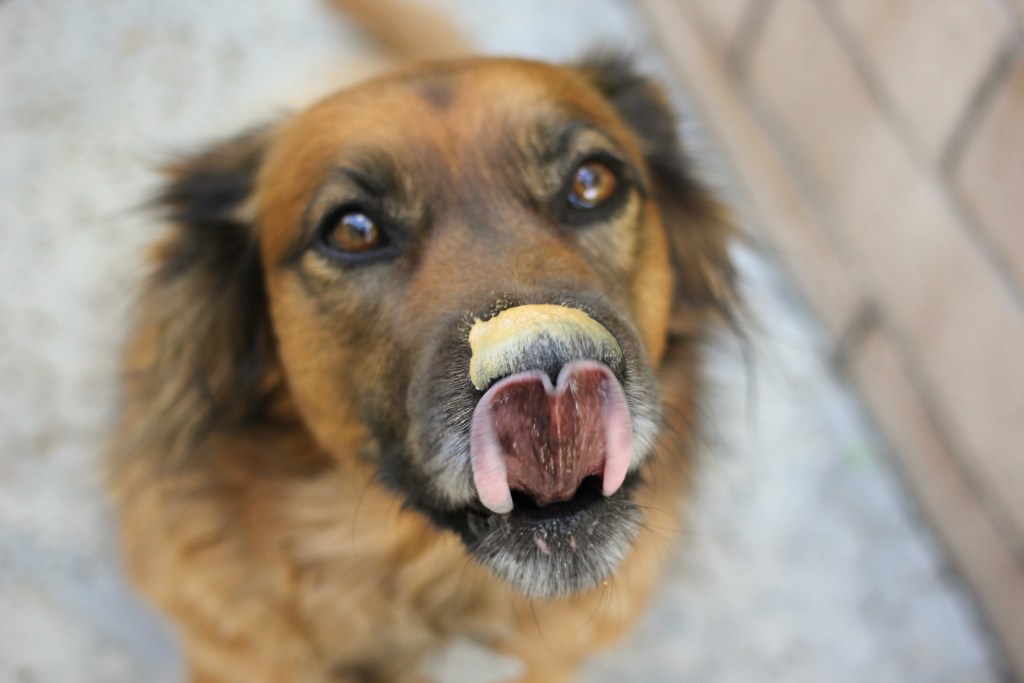
What to feed your dog instead of walnuts
If you’re looking for a nutty snack for your pup, go for peanut butter! A xylitol-free brand will do just fine. You can spread some on a special lick mat for your pup to enjoy during bath time (or whenever), or you can try one of the myriad peanut butter dog treat recipes available online.
If you’re looking for something to feed your pup directly from your plate — everyone should feel included, after all — check out this list of safe and delicious fall foods for dogs. Although people food certainly can be a lot more fattening, salty, or sweet than kibble meant for dogs, a little treat once in a while can be OK. If you’re concerned, you can always double-check with your vet.
For a bite-sized treat, browse your local pet store to get an idea of what kinds of flavors and textures you can choose from. From chews to bones and everything in between, there’s something for every pet! Our favorites are made with real ingredients and no preservatives; don’t forget to read the ingredient list when you’re out shopping!
When all is said and done, walnuts should not be a part of any dog’s diet. Their toxic fattening properties can have both short- and long-term consequences if ingested by a pup, so it’s best to keep your distance. Luckily, there are plenty of other delicious snacks you can have at the ready for your pooch — just remember moderation!

